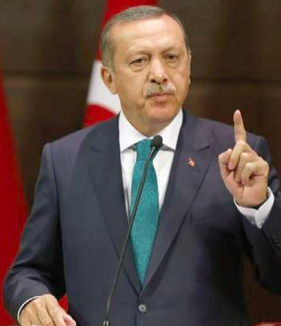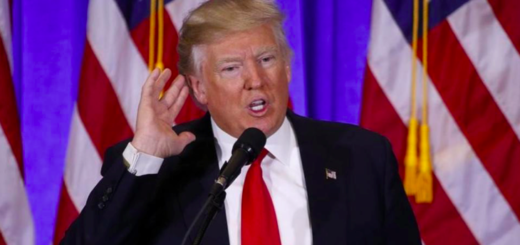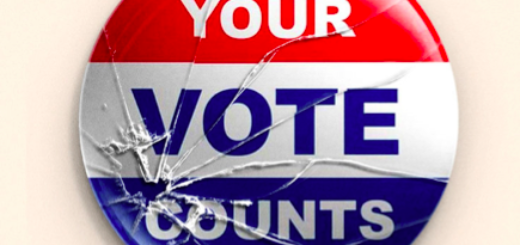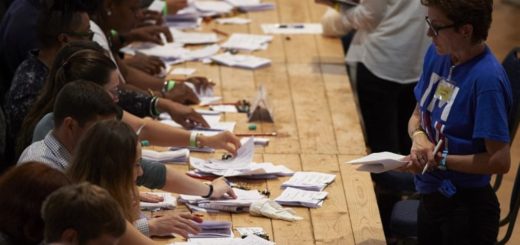World is larger than five, Join Surge of diplomacy for peace

(In the pic: President Erdogan of Turkey). Cup half full or empty? – World is larger than five, Join Surge of diplomacy for peace – By burak akcapar, in New Indian Express, 2th February 2017
 (Note: Comparisons are odious, but they help us see where we stand, whether we are standing still or moving forward or backward. The headline tells us we are speaking here of diplomacy. What is it? Diplomacy consists In keeping us firing even one is totally out of ammunition, which gives the impression serious action as in the past is going but nothing really happens, except noise to stop people complaining. Usually that is the role of diplomats, to help cultivate a mood of camaraderie between two fighting parties. Hence also the adage: “Don’t believe diplomats!”
(Note: Comparisons are odious, but they help us see where we stand, whether we are standing still or moving forward or backward. The headline tells us we are speaking here of diplomacy. What is it? Diplomacy consists In keeping us firing even one is totally out of ammunition, which gives the impression serious action as in the past is going but nothing really happens, except noise to stop people complaining. Usually that is the role of diplomats, to help cultivate a mood of camaraderie between two fighting parties. Hence also the adage: “Don’t believe diplomats!”
Here the author is trying to divide readers into two – optimists and pessimists — based on their assessment about their view on the progress we have made in reducing poverty in the world in the last two decades. This looks incomplete unless we include also “Realists”. Realists will not stop at half or full but will go to find out what is the state of affairs today, measuring the space gained after half, or the space left to reach full.
The ‘Five’ mentioned in the headline refers to the FIVE permanent members of the UN Security Council(US, China, Russia, France and UK). India the most populous country after China is not included in this council which makes the UN a puppet in the hands of the five who can’t represent the whole world in this era of democracy. There would not have been an Iraq war if India were in the Security Council.
Realism today demands to strengthen UN with proper representation and take radical steps to stop migration problem from African and middle East countries and secondly to reign in the dictator Assad of Syria butchering it own people in Aleppo (about which we wrote several time) and put an end to ISIS or the creation of a militant Islamic state. If we are to be realistic, this is no time for being optimistic on the basis of poverty reduction alone in the world in the last two decades. james kottoor editor)
Glass half-full or half-empty? Tell me your answer and I tell you who you are. If you tell me that the glass is half-full, then that would qualify you as an optimist. Say half-empty and you would be a pessimist. However, I do have a problem. I cannot decide whether the glass is half-full or otherwise when it comes to international affairs.
On the one side, statistics suggest that the number of the world population living in extreme poverty, as defined by the World Bank, has diminished by half in just two decades.
The UN even set a sustainable development goal for eliminating abject poverty by 2030. Already, fewer than 10 per cent of the world population have to live with less than $2 per day. The number of children deaths have come down. The world is also less illiterate. And wars between countries are in fact rare. If you are to judge the state of world peace from the number of inter-state wars, this is a peaceful era in the world history. Financial Times reported this week that the space for autocrats in Africa has been shrinking. This is a world in which the glass is definitely half-full.
But then, how about the fact that we are living in an era where the numbers of displaced are highest anytime in my half-century of life so far. The city of Aleppo was devastated as the world looked on. Rohingya children, in the Raknine state, Myanmar, are born into what the United Nations describe as widespread human rights violations, even possibly crimes against humanity. As I was writing this article, rioters were burning cars in successive nights of unrest sparked by the beating and rape of a young black man in Paris. Glass is half-empty. Politics in too many places is pulling humanity in the direction of a fragmented Europe, fragmented world. Exclusive and self-defeating “me first” world views are spreading in a copy-cat fashion, where higher ideals, morals, principles and common institutions are relegated to secondary, if not tertiary, status. This is dangerous because the world is already a powder keg. Instability, terrorism and conflict around the world cost us humans around $1.3 trillion a year, reports Global Peace Index.
Glass half-full or empty is then perhaps an irrelevant inquiry. There is much work to be done every which way. Here is a short list. First, concentrate on the problem areas of the Middle East and North Africa regions. Not all, but most of the war and peace problems stem from there, thanks to some degree to the 2003 invasion of Iraq. At any rate, the region is left behind since the Ottoman Empire fell, and must be helped to get out of its conundrums. Turkey already did a lot of the job by clearing 2,000 square kilometres of Syrian territory from Daesh (ISIS) terrorists and putting a break on the disintegration of Syria by YPG terrorists, while also helping re-launch the political process.
Secondly, do not think, nonetheless that instability shall not spread. Get your politics right. Resist xenophobic, migrant-phobic, Islamophobic, other faith-phobic, and non-democratic tendencies.
Thirdly, concentrate on state building. Problems become aplenty when states cannot govern themselves.
Last, but not least, defeat the bystander effect in international affairs, where everyone present expects the next person to offer help. Be enterprising and join what the UN Secretary General called the surge of diplomacy for peace. Because, as President Erdogan of Turkey does not tire reminding: “the world is larger than five” (permanent members at Security Council), and every stakeholder must contribute to peace.(Burak Akcapar,Turkish ambassador, professor and author)
















